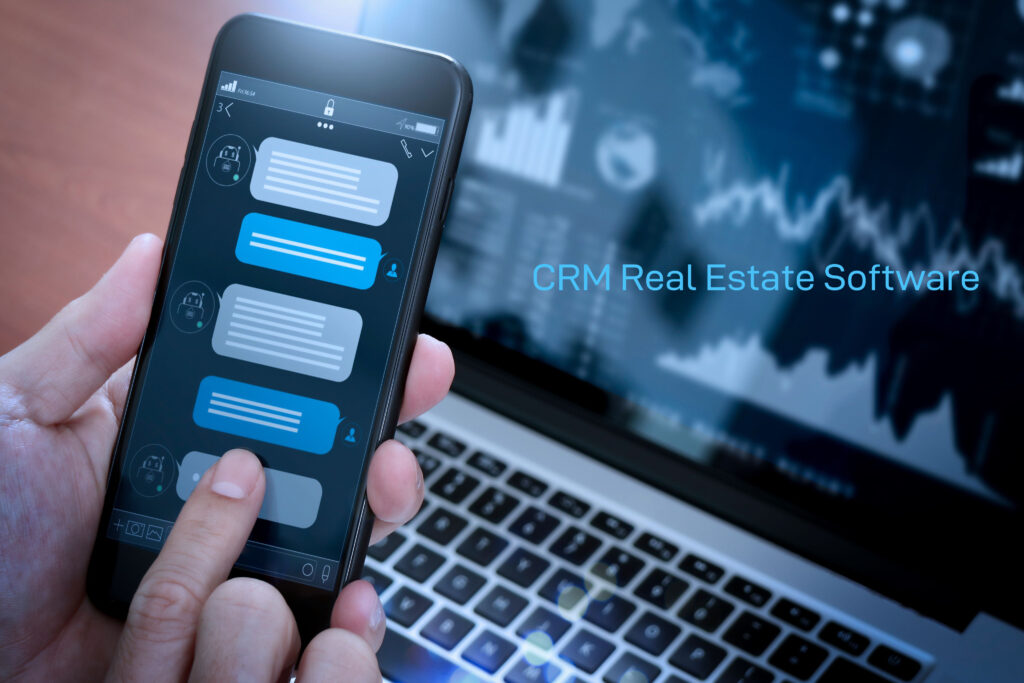Managing your interactions with customers and clients can be an exhausting job. If you're a real estate professional, then you're already quite familiar with this! You probably spend a lot of time managing tasks related to prospecting, lead generation, client retention, and a whole lot of other responsibilities. That's why real estate software is a must-have tool for any real estate professional. Using an effective CRM software for real estate, you can organize all your prospects, leads, and clients in one place and make sure you stay on top of all the interactions.
Trying to keep organized can be a nightmare without the help of cloud CRM software for real estate. But what is CRM software? And why is it so important – and useful – for real estate agents?

Customer relationship management (CRM) is a technology solution that enables organizations to manage their relationships with customers and other stakeholders through a single system.
A customer relationship management (CRM) system streamlines the organization and management of customer data. It replaces the myriad of spreadsheets, databases, cloud storage, and applications for customer management. The best real estate CRM software can result in improved organization and efficiency, as well as better time management. These benefits impress clients and strengthen customer relationships.
This CRM real estate software helps a business efficiently manage consumer interactions and transactions in order to increase profits. The software integrates data from multiple channels, including websites and mobile devices, to collect consumer information, such as order history and personal information.
A real estate customer relationship management (CRM) system helps real estate professionals manage their interactions with clients and customers. It can automate and keep track of tasks like prospecting, contact management, transaction management, and marketing.
The best real estate CRM software offers features that enhance client communications and put the customer's needs first, helping agents close more deals and boost revenue.
One of the most prominent advantages of using CRM software is the ability to better manage all the information related to your sales pipeline, deal, or client. The system allows you to keep track of various pieces of data and activities related to your real estate business.
So, you're searching for the best real estate CRM software? Well, you're in luck. There are numerous CRM software for real estate on the market today — but which one is right for you? The following is a step-by-step process for choosing the right CRM software for your business:
The features and functions of a CRM real estate software depend on the needs of a real estate business. It is important to choose a solution that meets your requirements. When choosing a CRM, real estate professionals should first consider how such systems will fit into their business processes and the needs of different customers as well.
CRM software costs vary, depending on the vendor and the type of features offered. Vendors typically use a subscription-based pricing model and charge a set per-user, per-month fee. This is dependent on several factors, including the number of users and the types and levels of features in the system.
But, cloud-based CRMs are usually the most affordable. Many real estate professionals often start with free CRM software in order to jumpstart their business, then upgrade to paid solutions when operations grow.
When choosing a CRM real estate software, buyers are faced with two deployment options: traditional software or Software-as-a-Service (SaaS) model. It's important to note though that cloud-based customer relationship management (CRM) is growing in popularity. Consider not only the convenience of SaaS but also the real estate business' cash flow requirements for subscriptions, equipment amortization and operations personnel.
Aside from deployment models, customer service and support are important. The vendor must provide reliable and knowledgeable help desk teams to assist a CRM software user anytime, anywhere.
Before signing a contract, ensure access to a product demonstration. Practice using the demo. This will give valuable insight into how the system works and what its strengths and weaknesses are for the real estate business’s needs.
Choosing the best real estate CRM software requires careful consideration. The guide above can help you as you begin to research the CRMs on the market, and they may provide some insight into which CRM will be most effective for you as a real estate professional. Like a sales software, you should select a CRM that best fits your business's needs, as the right software will be crucial to your business's growth.
Linsell, C. (2022, January 18). The Best Real Estate CRM for 2022: In-depth Reviews & Pricing. The Close. https://theclose.com/best-real-estate-crm/
Ryan, B. (2021, November 10). Best Real Estate CRM: How to Choose without Going Insane. Follow Up Boss. https://www.followupboss.com/blog/best-real-estate-crm
That will be a helpful article for people that consider implementing a CRM platform. We use EspoCRM in our company, I can recommend it to everyone that's looking for an effective solution. This platform has a free extension for the real estate industry, which allowed us to automate property request matching. Besides that, it provides the ability to manage information about customers, properties, deals, etc.